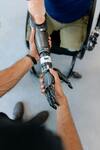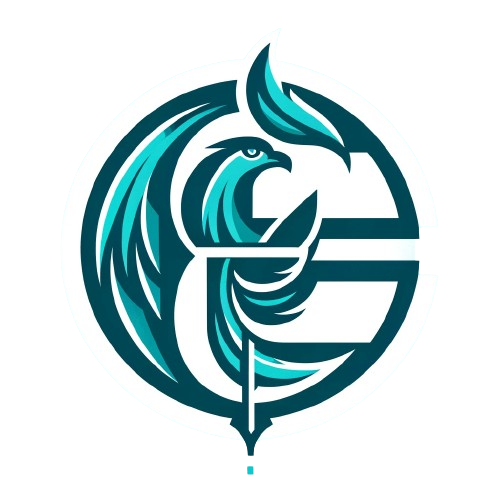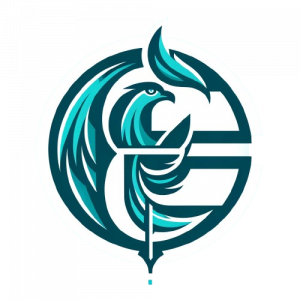Future-Proof Your Career in the Age of AI
How to Protect Your Job in the Age of AI
Understand What AI Can-and Can’t-Do
Whenever transformative technology emerges, it often sends waves of fear through the workforce. We’ve seen it before:
Early 20th century — the Industrial Revolution — when machines first began replacing manual labor
1980s — when personal computers disrupted office work
and now again, with the rapid rise of artificial intelligence.

AI is no longer a distant concept from science fiction. it’s already here, and it’s changing the way we work in real time. From automating customer service to generating compelling marketing content, AI tools are increasingly capable, efficient, and affordable. It’s no wonder many employees are asking, “Will my job still exist five years from now?”

“If you can’t beat ’em, join ’em.”
But history teaches us something important: those who adapt tend to survive—and even thrive. The key is not to fear AI, but to understand it, embrace it, and learn how to work alongside it.
The first step in protecting your job is to understand AI’s capabilities and limitations. AI excels at automating repetitive tasks, analyzing large datasets, and performing pattern recognition. However, it still struggles with:
– Emotional intelligence
– Creative problem-solving
– Strategic thinking
– Human connection
Jobs that rely heavily on human insight, empathy, and nuanced communication are less likely to be fully automated.
Become AI-Literate
You don’t have to be a programmer to understand how AI works. Start by familiarizing yourself with basic concepts like:
– Machine learning
– Natural language processing
– Automation tools
Free courses, YouTube videos, and AI literacy webinars are widely available. The more you understand AI, the less likely it is to take you by surprise.
Embrace Lifelong Learning
AI is evolving fast, and so should you. Commit to ongoing education-whether through formal training, certifications, webinars, or self-guided learning. Focus on developing your tech skills, becoming tech-savvy (even if you’re not in a tech. role)
– Adaptability and willingness to learn new tools
– Domain expertise that goes beyond what machines can replicate
Use AI to Boost Your Productivity
“If you can’t beat them, join them!”
Rather than seeing AI as a threat, make it your ally. Use tools like ChatGPT, Grammarly, Notion AI, or AI-powered analytics platforms to:
– Automate mundane tasks, including the following:
– Generating reports
– Brainstorming ideas
– Improving communication
Being proficient with these tools can free up your time for higher-level responsibilities and strategic thinking-areas where human insight is still essential.
Develop Soft Skills that AI Can’t Replicate
Human-centered skills are your secret weapon. AI cannot replicate human skills, including:
– Leadership
– Team collaboration
Emotional intelligence
– Empathy
– Active listening
– Conflict resolution
– Emotional intelligence
These “soft” skills are increasingly becoming “core” skills in a world where technical tasks are automated.
Make Yourself Indispensable
Ask yourself: What problems do I solve that no one else does? The more value you add beyond
your job description, the harder you are to replace. Look for ways to:
– Innovate processes
– Build strong relationships with clients or team members
– Mentor others
– Be the go-to person for critical thinking and creative solutions
Your unique contribution is your greatest job security.
Stay Curious and Open to Change
The people most at risk of losing their jobs to AI aren’t those in vulnerable industries-they’re those who resist change. Stay curious, stay open, and stay proactive. Ask questions like: – How can I do my job better with the help of technology?
– What are the emerging tools in my field?
– What do I need to learn next?
Explore New Career Paths Within Your Industry
AI is not just replacing jobs-it’s creating new ones. Roles such as AI ethicist, automation strategist, prompt engineer, and digital transformation manager didn’t exist a few years ago. Think about how your current skills can evolve into new opportunities.
Final Thought
AI is not the end of work-it’s the evolution of work. By adapting, upskilling, and leading with your human strengths, you don’t just protect your job-you create a future where you can thrive.
Remember: In a world increasingly driven by machines, being deeply human is your greatest competitive advantage.


Latest Post
Future-Proof Your Career in the Age of AI

The Future of AI Services in CPA Firms: A New Era of Accounting Excellence

Life After Stroke: Why I’m Asking for Your Help Now


